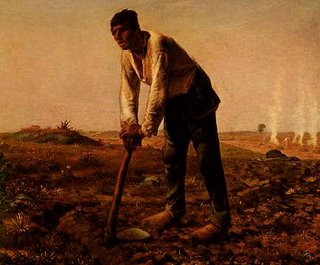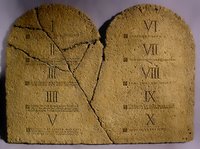I was sitting at home watching the sun set, and it dawned on me that there is a most important verse in the Bible and I think I know what it is. It might sound odd to say that one verse is more important than another in a book that is divine in origin. However, it seems obvious to me that God is not an egalitarian with regard to bible verses. Think about it. Romans 8:1 is significantly more powerful and real to us than Colossians 4:14.
So, what is my point? My point is that in one verse all of the words of Scripture can be brought to bear. In fact, had these words not been spoken by God and penned by man, then all would have been lost. Let us turn our attention then to Genesis 1:27. It says, "So God created man in his own image, in the image of God he created him; male and female he created them." There it is. The most important verse in the Bible. You don't even have to flip too many pages in your Bible to find it. It's probably on the first page. Why, you might ask, is this verse so important? I'll give you at least three reasons.
First, it explains the character of God. He is creative and responsible. Now, we can see that God is creative from the verses that directly proceed this one. However, God wants to make it undeniably and unmistakably apparent to us that creation is His doing. How? By putting his ultimate stamp of approval on us. His image. We are image-bearers of God. He says to us in the beginning that "You are my doing, I am responsible for you." We also see the kindness of God, simply because He made us. He was under no obligation to create us or the world, but He wanted to so He did. So God has left His indelibale mark on us.
Second, it tells us all about ourselves, who we are. It tells us that we are valuable. God has attached his image to us; therefore, it is true that God has placed a high value on this part of creation. It tells us that we are not all the same. There is a uniqueness to each of us. Why do you think He created us male and female instead of male and male or female and female? He did not make us genderless robots. There is a beautiful nobility to each of us because that is what God intended. It tells us that He made us free. Since we are created in His image and we share in His likeness and God himself is free, then we must be also. Finally and most importantly, it tells us why there is hope for us. We are image-bearers, and as such God desires to redeem us. He cannot deny Himself. Our image-bearing is the reason He was willing to give of Himself in the ultimate way. By placing His stamp on us, He obligated Himself to redeem, not for our sakes but for His own. This verse sets up the rest of redemptive history, and the whole of the Bible after it is, as Paul Harvey likes to call it, "the rest of the story."
Third, it is in this verse that we can find ultimate meaning and purpose. It is here that we discover ourselves. This is true self-actualization. Only in realizing that we are made in God's image, can we understand both ourselves and God. In
Everything You Ever Wanted to Know About Heaven, Peter Kreeft makes this utterly profound statement: "But we are objects to God (though we are subjects to this world); we too, therefore, are true only when we conform to God's knowledge of us, God's artistic plan for our identity. Since our highest freedom means freedom to be ourselves, we are most free when we are most obedient to God's will, which expresses His idea of us." That last statement is amazing. God in His infinite wisdom has an idea of us and an ideal for us. It is there we find ourselves completely, fully. What is God's idea of us? It is grounded in His very being, in the concept that we are made in His image.
Isn't wonderful that God told us the entire story one page into the book?







